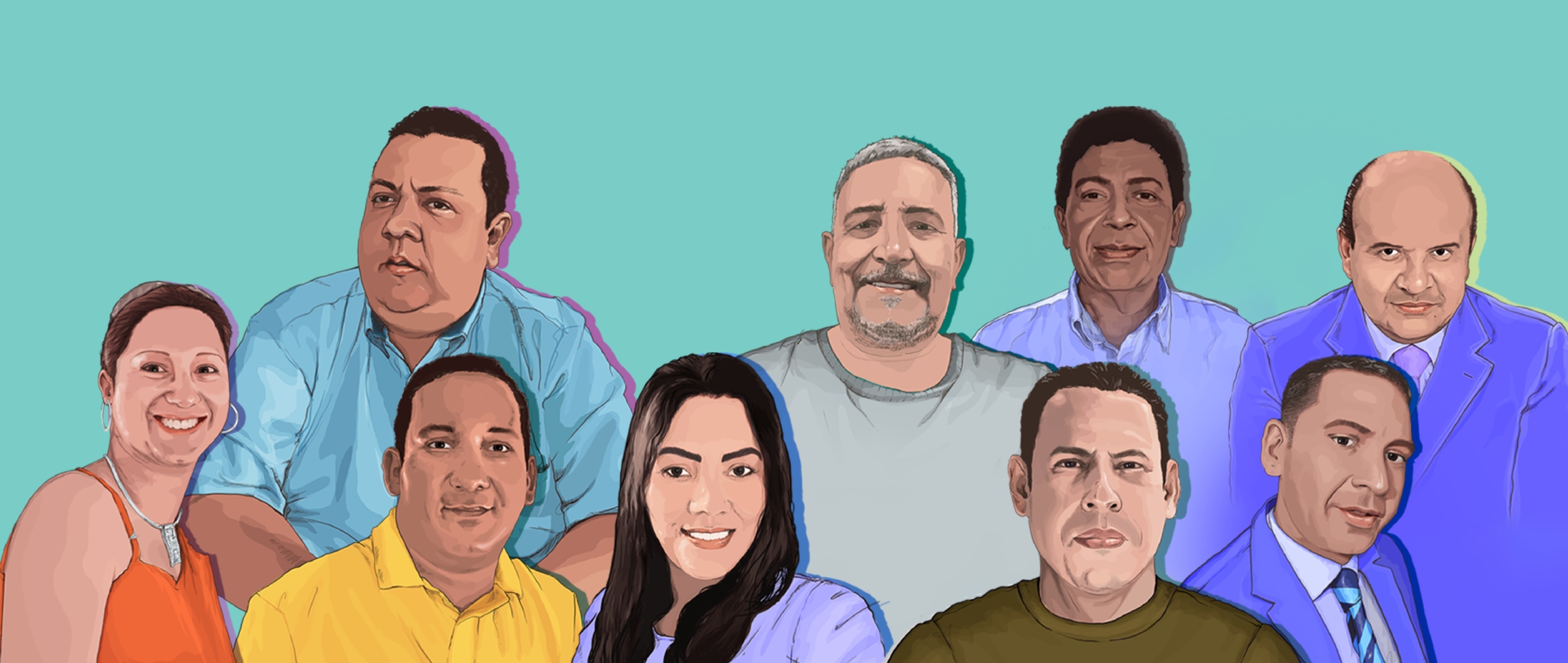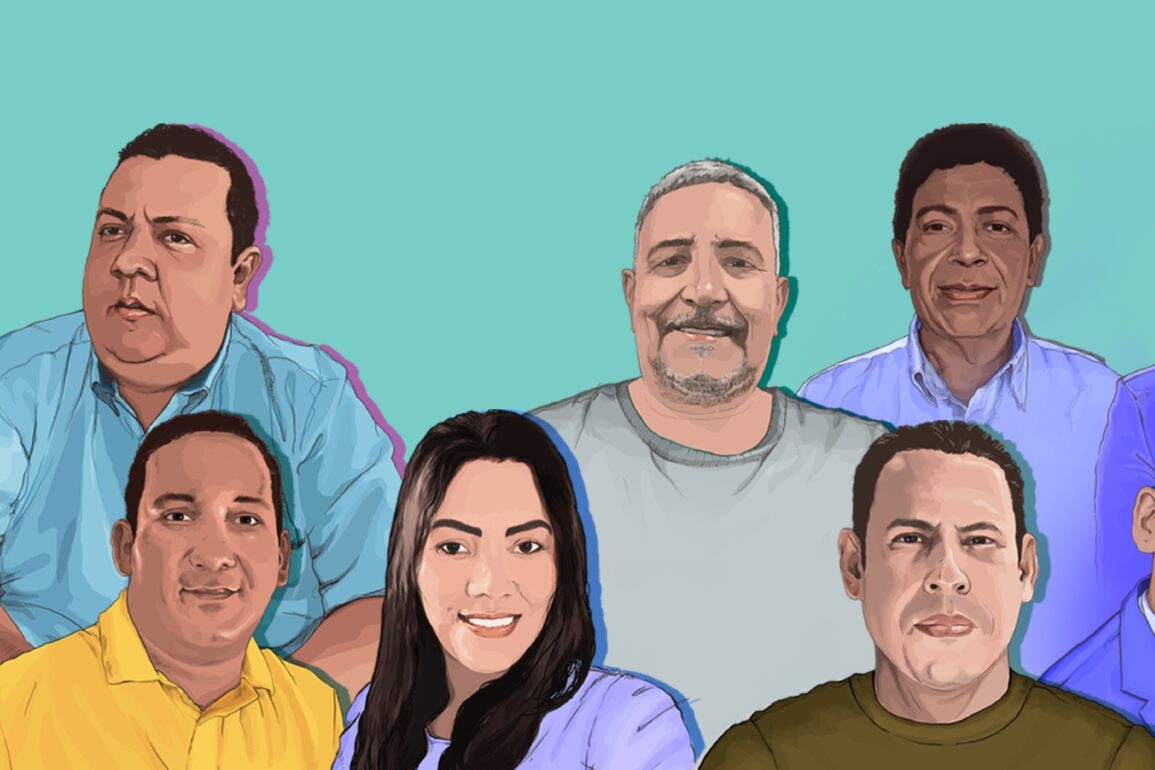
In the new report, Life detained: Politically motivated arbitrary detentions continue in Venezuela Amnesty International denounces the Nicolás Maduro government’s persisting policy of repression and documents the cases of nine people arbitrarily detained under this policy. The organisation demands their immediate and unconditional release.
“The evidence shows that Nicolás Maduro’s government’s policy of repression and the human rights crisis continue to jeopardise the rights to life, liberty and protection from harm in Venezuela. Our report not only documents the unjust detention of teachers, trade unionists and human rights defenders in the country, but also the arbitrary nature of the justice system, inhumane detention conditions and impact on people’s lives that go unpunished. Arbitrary detentions cannot continue to be a tool of repression and social control by the government,” said Erika Guevara-Rosas, Americas director at Amnesty International.
This new investigation documents nine cases of victims of politically motivated arbitrary detentions between 2018 and 2022. Some were directly linked to political activism in opposition to the government, such as the case of Roland Carreño, and others for gender reasons or family ties to third parties considered suspicious by the government, as in the case of Emirlendris Benítez. The variety of these political motivations shows how highly vulnerable the general population is to falling victim to arbitrary detention and other serious human rights violations, with those affected ranging from declared opponents of the government to people who are not politically militant at all.
The nine victims of detention documented in this report are:
1. Emirlendris Benítez: mother and tradeswoman, arrested in August 2018.
2. María Auxiliadora Delgado and Juan Carlos Marrufo: married couple, both professionals, arrested in March 2019.
3. Roland Carreño: journalist and political activist, arrested in October 2020.
4. Guillermo Zárraga: former trade unionist and father, arrested in November 2020.
5. Dario Estrada: engineer and neurodiverse person, arrested in December 2020.
6. Robert Franco: teacher and trade unionist, arrested in December 2020.
7. Javier Tarazona: human rights defender and prisoner of conscience, arrested in July 2021.
8. Gabriel Blanco: activist and humanitarian worker, arrested in July 2022.
Emirlendris Benítez, aged 42, is a mother, sister and tradeswoman, arbitrarily detained since 5 August 2018. She was detained on unfounded grounds, falsely linked to acts of violence committed against Nicolás Maduro for the simple fact of sharing a car journey with third parties allegedly involved in such acts. Despite being pregnant, Emirlendris was tortured and subjected to a forced termination of her pregnancy. The after-effects of the beatings she suffered left her in need of a wheelchair and with other serious health problems. Emirlendris is serving an unjust 30-year prison sentence in the National Female Orientation Institute (INOF) in Los Teques, Caracas, some 30 kilometres from her family, who must provide her with food, water and supplies despite the humanitarian emergency that continues to plague the country.
The evidence shows that Nicolás Maduro’s government’s policy of repression and the human rights crisis continue to jeopardize the rights to life, liberty and protection from harm in Venezuela.
Erika Guevara-Rosas, Americas director at Amnesty International
Emirlendris Benítez, aged 42, is a mother, sister and tradeswoman, arbitrarily detained since 5 August 2018. She was detained on unfounded grounds, falsely linked to acts of violence committed against Nicolás Maduro for the simple fact of sharing a car journey with third parties allegedly involved in such acts. Despite being pregnant, Emirlendris was tortured and subjected to a forced termination of her pregnancy. The after-effects of the beatings she suffered left her in need of a wheelchair and with other serious health problems. Emirlendris is serving an unjust 30-year prison sentence in the National Female Orientation Institute (INOF) in Los Teques, Caracas, some 30 kilometres from her family, who must provide her with food, water and supplies despite the humanitarian emergency that continues to plague the country.
María Auxiliadora Delgado, aged 49, and Juan Carlos Marrufo, aged 52, are a Venezuelan married couple with dual Spanish and Italian nationalities, respectively. They were arbitrarily detained by agents of the General Directorate of Military Counterintelligence (DGCIM) on 19 March 2021. Their only connection to the crimes of which they are accused appears to be limited to the fact that María Auxiliadora is the sister of a retired military officer with alleged links to an attempt on Nicolás Maduro’s life. They had decided to undergo in vitro fertilisation treatment when they were arrested. Not only are they victims of arbitrary detention, but they have also been deprived of their life plans, which included growing their family.
Guillermo Zárraga is a 59-year-old engineer and former trade unionist in the Venezuelan oil industry, arbitrarily detained by agents of the DGCIM at his home at 3am on 14 November 2020. In addition to his role as leader of the Sindicato Único de Trabajadores in the state-owned company Petróleos de Venezuela S.A., Zárraga was photographed with Juan Guaidó, leader of the opposition. That photograph is part of the accusation by the Public Prosecutor’s Office, evidence of Zárraga’s alleged intention to support a sabotage plan allegedly promoted by an agent of the US intelligence agency. With an unsubstantiated and politically motivated accusation against him, Guillermo remains arbitrarily detained and is suffering from serious deterioration in his health, without access to drinking water or adequate food.
These cases, alongside the five additional cases described in the report, reflect a pattern of repeated actions at different times, in different places, and committed by different state security forces. Within the context of these arbitrary detentions, other grave, related and recurring human rights violations or even crimes under international law are also committed, including torture and other cruel, inhuman or degrading treatment, enforced disappearances, lack denial of due process and fair trial guarantees, use of courts with special jurisdiction over “terrorism”, and inhumane detention conditions. Similarly, the authorities repeatedly use ambiguous and discretionary criminal definitions and arbitrarily and unfoundedly pursue charges of criminal association.
“Emirlendris, María Auxiliadora, Juan Carlos and Guillermo are emblematic victims of a widespread and systematic pattern of attacks on people who can be considered critical of the government in Venezuela. These cases are not in the past nor are they isolated. The arbitrary detentions, torture and forced disappearances to which they have and continue to be subjected are crimes under international law. This is why the Venezuelan authorities are being criminally investigated by the International Criminal Court, by Argentine courts under the principle of universal jurisdiction, and are subject to the scrutiny of the United Nations under the mandate of the Fact-Finding Mission and the High Commissioner for Human Rights. Pressure from the international community cannot relent,” said Erika Guevara-Rosas.
Venezuelan civil society organisations estimate that around 300 people are currently detained for political reasons in Venezuela. According to Foro Penal, there have been more than 15,700 politically motivated arbitrary detentions in Venezuela since 2014.
This post was originally published on this site be sure to check out more of their content.









